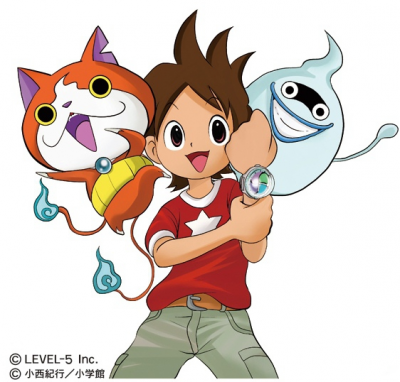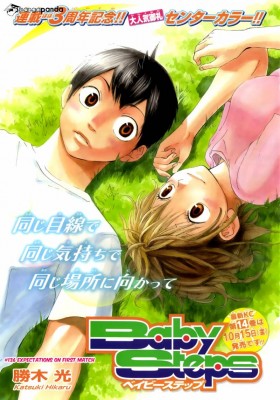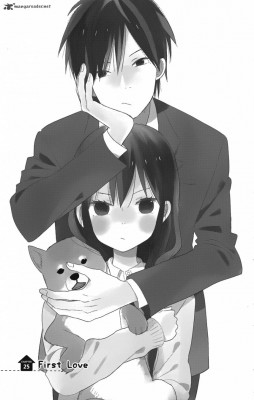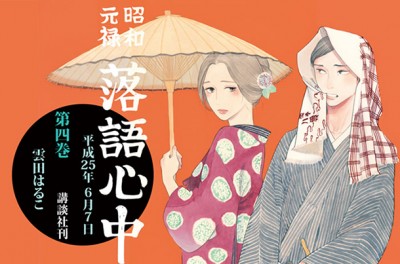Winners of the 2014 KODANSHA MANGA AWARDS
On May 9, 2014, manga publisher Kodansha announced the winners of its 38th annual Manga Awards. They were Noriyuki Konishi’s Yo-kai Watch for the children’s category, Baby Steps by Hikaru Katsuki for the shounen (boys) category and Ta’amo’s Taiyou no Ie for the shoujo (girls) category. Rounding out the list was the winner for Best General Manga, Shouwa Genroku Rakugo Shinjuu by Haruko Kumota. The winners each received a bronze statuette and a cash prize of ¥10 million (US$10,000). The seven-member judging panel included prominent names such as Tohru Fujisawa (GTO) and Kousuke Fujishima (Oh My Goddess!).
Originally starting out as a popular role-playing video game for the Nintendo DS, Yo-kai Watch showcases the adventures of 11-year-old Keita Amano. While hunting for bugs in a forest near his town, Keita comes across a dilapidated capsule machine near a sacred tree. Opening one of the capsules revealed a youkai (ghost or spirit) named Whisper who then gave a special yo-kai watch to Keita. This watch gives Keita the ability to see and identify various youkai who cause harm and mischief in his town. With the help of Whisper and Jibanyan (a cat-like youkai), Keita then goes off to discover more about youkai. He befriends some of them and they in turn aid him when he fights the bad youkai.
Like Prince of Tennis, Baby Steps focuses on tennis and high school life, but it depicts them in a more down-to-earth manner. Its main character, Eiichirou Maruo, is a straight-A student with poor health. Thinking that playing sports will get him some much needed exercise, he enrolls at his school’s tennis club. Falling in love with the game, he strives to become an ace tennis player even if he has no previous experience and is in poor physical condition. He applies his intelligence and studious habits and soon develops a highly strategic playing style that enables him to predict his opponents’ moves in advance. Complications arise when Eiichirou has to deal with his feelings for the classmate who introduced him to the tennis club, Natsu Takasaki, who happens to be his complete opposite.
Complicated relationships arise in Taiyou no Ie (House of the Sun). Growing up, Mao Motomiya spent most of her time at her neighbor, Hiro Nakamura’s house because she felt so much happier there. But tragedy happens when both of Hiro’s parents died in a car accident and he was left to live all by himself. Things eventually take an interesting twist when her father remarries and her new stepmother brought along her stepsister to live with them. Feeling that she no longer has a place in her own home, lonely Hiro took pity on Mao and asked her to live with him. Things become more complicated when Hiro’s siblings, Hina and Daiki, take up residence again at their house.
The traditional art of rakugo (a form of storytelling where the storyteller says a long, funny story to an audience with only a paper fan and handtowel as props) is the subject of Shōwa Genroku Rakugo Shinjū (“Shōwa Genroku Era Comic Storytelling”). An ex-convict wanted to become a professional rakugoka after watching a performance by the great Musho Yakumo. Even though he has never taken an apprentice before, the e-convict’s persistence eventually paid off. Granting him the name ‘Yutarō’, Yakumo teaches him the tricks of the professional storyteller’s trade. Yutarō also meets Konatsu, Yakumo’s ward. She too, dreams of becoming a rakugoka – unfortunately, it is banned for women.















